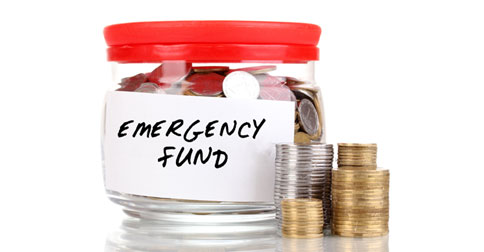Preparing An Emergency Fund

You may have heard of the concept of keeping an emergency fund. But do you know if yours is big enough?
For those new to the term, an emergency fund is money set aside to be used only in the case of a life emergency.
Think of it as a small self-insurance policy.
A last minute vacation to Vegas, although pretty awesome, isn't an emergency.
A financial emergency is an unexpected and required event / happening that you're unable to pay for with your regular monthly income.
The point of having a special fund setup to cover this expense is so that you won't have to go into debt to cover the costs.
You'll be able to pay it off immediately, or support yourself over a few months in the case of a job loss.
So, how do you know if your emergency fund is big enough?
Odds are it isn't big enough. I know I'm not going to get away with that easy answer though.
So what I will do is try and give you six major points to think about to give you confidence in your emergency funds. After all, I'm not going to be there to bail you out.
1. Know the Rule of Thumb
Most money experts will tell you that you need anywhere from 3 to 6 months worth of expenses in liquid savings (i.e. cash).
If you're unsure of how to calculate that number, or if you did calculate it and it didn't give you warm and fuzzy feelings, keep reading.
The reason the 3-6 rule is used is because for the typical family that's enough to help you get by for a bit if you lose your job.
It also ends up being enough to help you cover unexpected medical bills, car repairs, etc. for the insured.
2. Know Your Monthly Expenses
If you're going to use the 3-6 months expenses rule, you'll need to determine what that is. The quickest way to do that is to gather receipts and statements from your bank over the last 6 months.
Use that data to determine the total average monthly spending over the last 6 months. Multiply that average by 3, 4, 5, and 6 months.
The other factors listed below are going to help you determine which of these numbers (3x, 4x, 5x, or 6x) to use as a basis for your emergency fund.
3. Know Your Insurance Deductibles
A job loss isn't the only type of emergency you could experience. Something could happen to your car, your house, or the health of someone in your family.
Do you know how much your insurance company is going to cover? Are there large deductibles on your plans?
Based on what you find out here, you may be in need of a six months emergency fund vs the three month variety.
4. Know Where You're Not Insured
If you actually go without insurance for some area of your life, consider what an emergency in that area would cost you. Bump your emergency fund up based on what you have uninsured.
Those without health insurance should really have a huge emergency fund to help cover those unexpected medical bills.
5. Know Your Assets
If you're a one car family, unless you live in the city, you are highly dependent on that car (asset). If that car needed a repair, you'd have no choice but to spend the money to repair it.
Likewise with your home. If your home is old and in need of constant repair, you're emergency fund will need to trend higher to be able to cover those repairs.
6. Know Your Job Market
Are you the sole bread-winner in the family? How confident are you that you could get another job a few weeks or months after you've been laid off?
If you think it would take more than a few months, because (a) your industry is in bad shape, or (b) you aren't that marketable (for whatever reason), then consider bumping your emergency fund number up above the six month mark.
Keep going until you feel comfortable with the number.
My final thoughts...
So where does that put your emergency fund? I think if you start with the three month rule and then bump that up based on the risk involved in the other areas I listed you can get pretty close to your actual required emergency fund.
When in doubt, just strive to make your emergency fund big enough to cover you for six months of income instead of expenses. That's a very conservative number and would put you way ahead of most other savers.